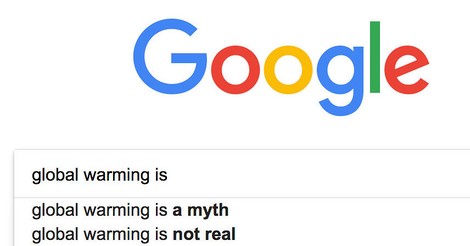Your podcast discovery platform
Curious minds select the most fascinating podcasts from around the world. Discover hand-piqd audio recommendations on your favorite topics.

piqer for: Global finds Technology and society
Prague-based media development worker from Poland with a journalistic background. Previously worked on digital issues in Brussels. Piqs about digital issues, digital rights, data protection, new trends in journalism and anything else that grabs my attention.
Enough With The Elections! Misinformation Plagues Other Fields Too, Just Look At Climate Change
2017 was all about online misinformation and how it affected the outcome of the US Presidential election. The same debate spread to other continents as well, resonating in many European countries whose governments took official action against election disinformation. For example, in France president Emmanuel Macron recently vowed to fight fake news during elections, promising legislation that would demand more transparency about sponsored content and allow emergency blocks of websites that promote fake information.
Don't take me wrong. I do agree that election misinformation is a challenge for democracy. But I also think that with so much focus on the voting period, we overlook other relevant fields where fake news and manipulated truths are rampant too, such as climate change. Take this article by The New York Times, which looks at the use of online platforms to spread misinformation about environmental issues.
"America’s technology giants have come under fire for their role in the spread of fake news during the 2016 presidential campaign, prompting promises from Google and others to crack down on sites that spread disinformation. Less scrutinized has been the way tech companies continue to provide a mass platform for the most extreme sites among those that use false or misleading science to reject the overwhelming scientific consensus on climate change," writes The New York Times.
The article investigates how Google shows false and misleading ads when searching for “climate change” or “global warming.” Still, the observant author manages to look further, acknowledging that the problem goes beyond the environment.
"The climate denialist ads are an example of how contrarian groups can use the internet’s largest automated advertising systems to their advantage, gaming the system to find a mass platform for false or misleading claims," writes The New York Times.
